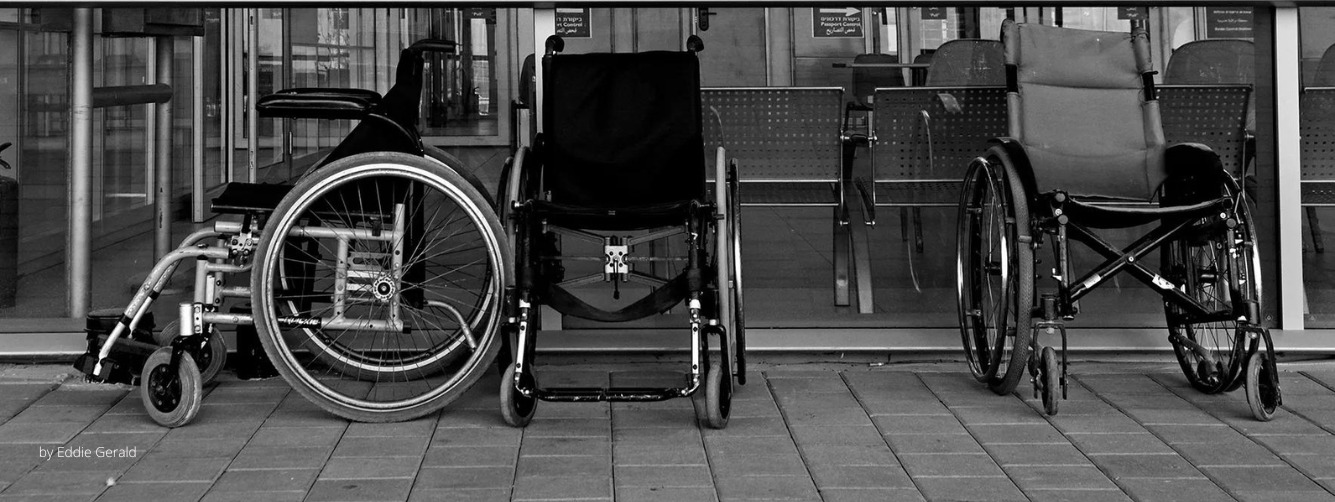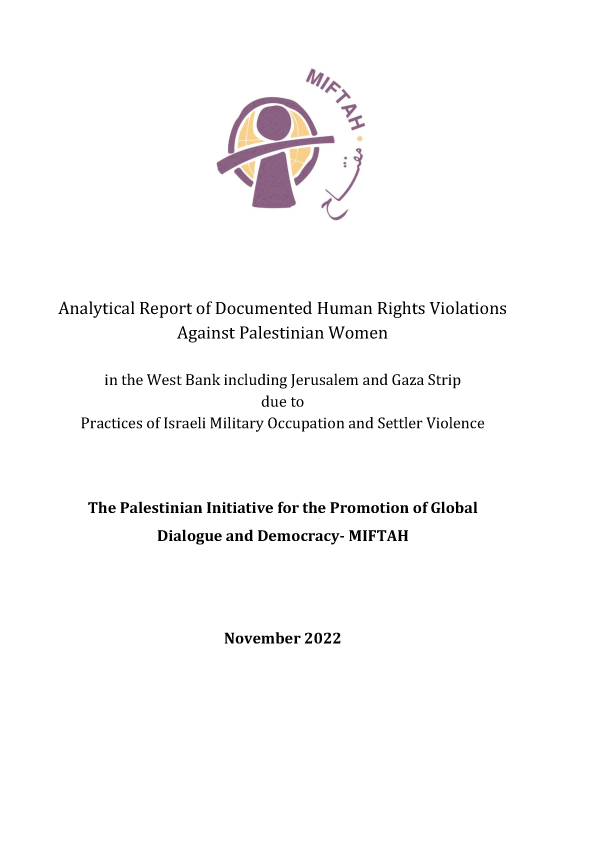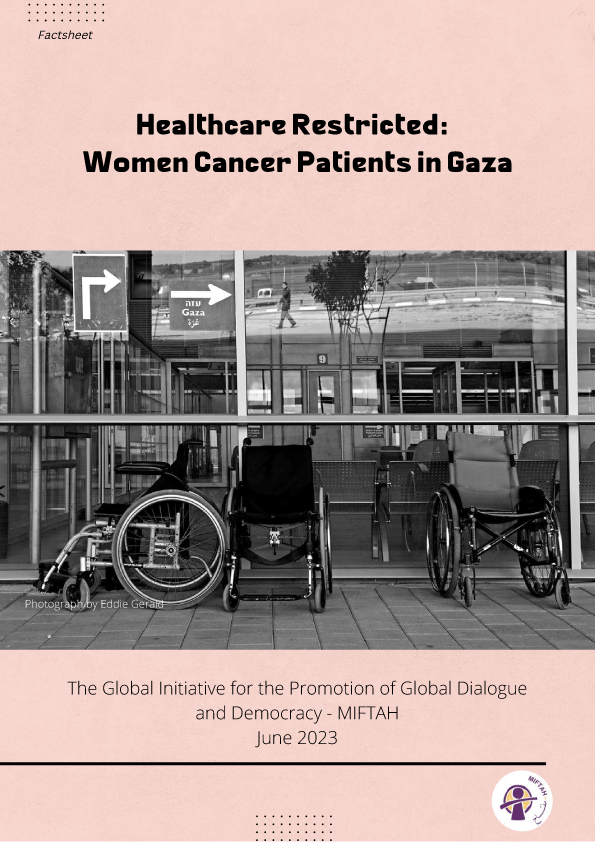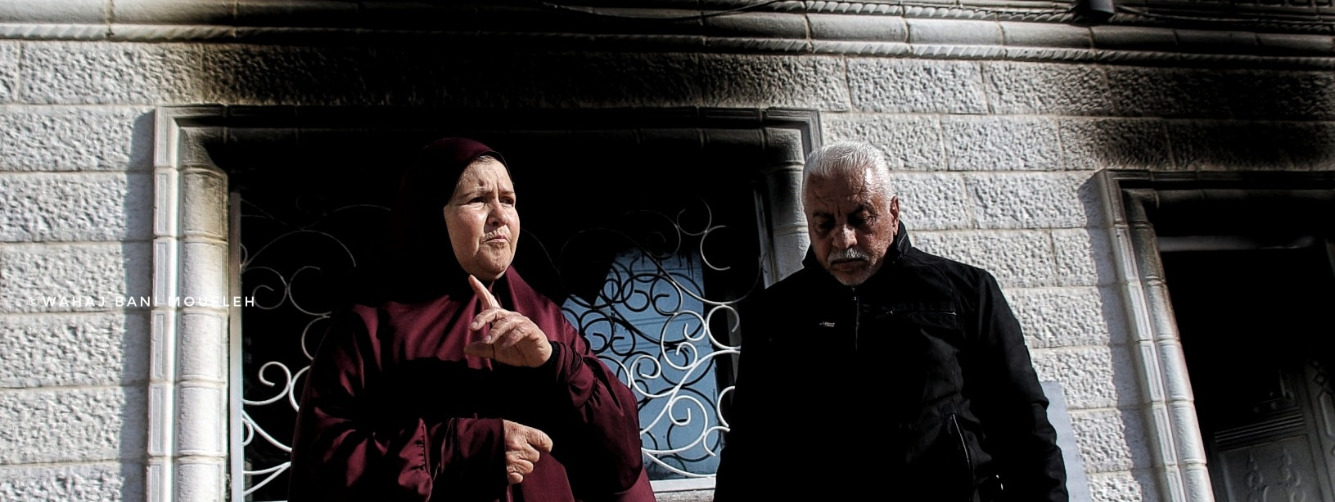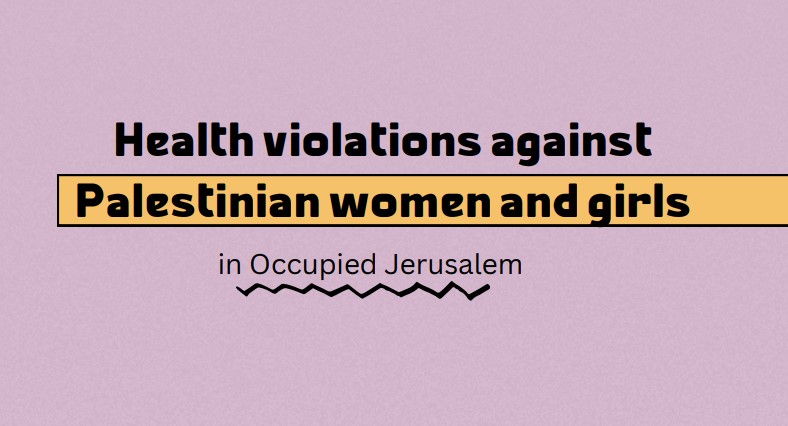
Introduction:
This factsheet focuses on challenges, obstacles and the monitoring of health violations pertaining to Palestinian women and girls in Occupied East Jerusalem and in other areas under Israeli occupation, within the context of Article 12, Provisions 1 and 2 of The Convention on the Elimination of All Forms of Discrimination against Women (CEDAW). Data was retroactively collected from July-August, 2021 for the period between 2017 and September 2021.
The lengthy duration of the Israeli occupation has stripped and deprived the Palestinian people, women and girls in particular, of their humanity and rights. Moreover, the occupation of East Jerusalem and the restrictions imposed on Palestinians further compounds this situation. This includes the Israeli separation wall, which has isolated Jerusalem and its 335,000 Palestinian residents from the rest of the West Bank. Of this number, 140,000 Jerusalemites live in areas under illegitimate Israeli municipal jurisdiction, but on the other side of the wall, which means they can only enter the city through Israeli military checkpoints. There are many of these areas in and around Jerusalem, including Abu Mgheira/Jabal Mukkaber, Kufr Aqab, Shufat Camp, Anata and others.
Report sample:
Jerusalemite women and girls within the following age groups:
| Age group | 12-18 years | 19-45 years | 45 + years | Total |
| Number | 26 | 45 | 35 | 106 |
| Percentage | 24.5% | 42.5% | 33% | 100% |
Through field reports, focus group discussions and individual testimonies from women and girls, several violations and challenges to health rights were evident, in addition to the obstacles Palestinian Jerusalemite women and girls face while receiving Israeli health care services. These violations and obstacles can be divided into three categories:
- Challenges to accessing health services, including having to cross military checkpoints to reach them, in addition to economic challenges.
- Obstacles to accessing specialized health services and to medical referrals and information, in addition to overcoming the language barrier and discrimination while receiving health services.
- Shortage of and negligence in the provision of health services, including maternal and childcare and adolescent and mental health services.
Challenges and violations according to testimonies from the targeted sample
| Challenges and violations | % |
| Separation wall, military checkpoints and restrictions | 62.2% |
| Difficulty in getting appointments for specialized medical services and referrals | 54.7% |
| Economic burdens of remittances and the high cost of transportation to reach services | 49% |
| Difficulty in obtaining medical and health information and instructions | 50% |
| Language barrier and lack of confidentiality and privacy | 47.2% |
| Poor level of mental health services | 10.4% |
| Lack of awareness on the importance of mental health services and not knowing there are available counselors | 50% |
| Discrimination in dealing with Palestinian citizens | 12.3% |
This report is part of a project on the implementation of CEDAW in Jerusalem, conducted by MIFTAH in cooperation with Juzoor for Health & Social Development and the CEDAW Coalition member institutions working in Jerusalem. It will be part of the shadow report for this project.
The content of this document does not reflect the official opinion of the European Union. Responsibility for the information and views expressed in the study lies entirely with MIFTAH




